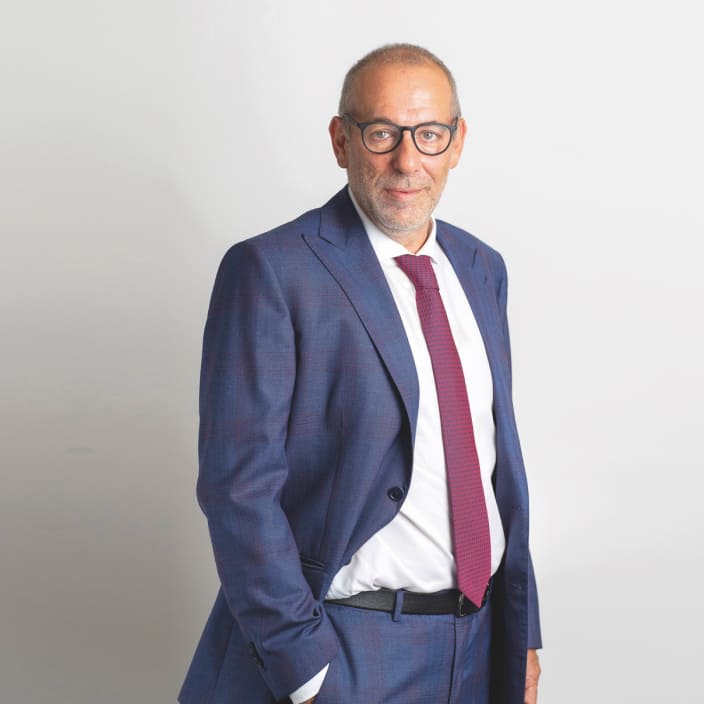
The story goes that Brian Chesky, the founder and CEO of Airbnb, took a long time to choose his company’s first employee. He spent a good five months reading and studying thousands of resumes, personally doing hundreds of interviews. «I believe that choosing the first engineer is like laying down the DNA of the company» Chesky said. He is still looking today for people who believe in the company’s mission, and are convinced of the product, its implications, and its future.
What does it mean to be an entrepreneur, albeit not in the strict sense of the word? It means accepting the challenge of having a blank sheet of paper in front of you, and not being afraid to write on it, day after day. With the ink of passion, of the drive to do, of the determination to make an impact and a difference. However, few companies and groups are willing to open themselves up to this kind of challenge. As a general rule, the paper is pre-set and the theme has already been written: bureaucracy and lengthy decision-making chains harness the spirit of those who work there. We know that fostering a culture of entrepreneurial responsibility in organizations as complex as our Group may not be an easy task. Looking around, every single member of Maire Tecnimont is aware of operating in different continents and climatic zones, in industrial areas as well as in the most remote of places. Fifty different companies, diverse corporate entities working in synergy, an integrated group exploring the new frontiers of the energy transition.
In order to maintain a fluid and profitable global presence and such a large geographic scale, in addition to leveraging the vitality of local projects and teams, our Group stands out because of the actual presence of an entrepreneur who represents an on-going incentive to come up with ideas that address change and improve our performance. As you will read in the next pages, in the article that reconstructs his professional history, Di Amato is the example of an entrepreneur who has always taken on great responsibility with passion and competence, reacting to change and looking ahead without fear to grow.
Ours is a business driven by the value of people, who are at the center and are the engine of our industrial success. At KT- Kinetics Technology, for example, a company of the Maire Tecnimont Group with a strong technological background and keen focus on its process design capabilities, we are challenged to identify solutions and make difficult decisions under conditions of uncertainty every day. Technological skills, historical engineering and chemical know-how, combined with an adaptability gained in the field, are the key factors for achieving results.

WORKING IN THE GROUP IS TRULY THRILLING: NO ONE EVER FEELS LIKE A SMALL COG IN THE WHEEL, UNLESS HE OR SHE WANTS TO FEEL LIKE ONE. EVERYONE HAS THE OPPORTUNITY TO MAKE AN IMPACT, TO FEEL LIKE AN ENTREPRENEUR IN A NETWORK OF ENTREPRENEURS.
All of our Mottos represent a different perspective on the value of entrepreneurship: knowing how to meet challenges, understanding the importance of individual decisions, being adaptive and resilient, and fighting bureaucracy. When we speak of “human capital intensive” – referring to companies without bulldozers, ships, assembly lines or presses – we mean an agile, flexible, international business model. Especially in the sector of natural resources downstream, which is increasingly oriented towards a service industry linked to ingenuity, digital transformation and the great added value of the energy transition.
Perhaps anti-fragility represents the most modern concept of entrepreneurship, and we are permeated with it. We are chameleon-like and agile, as the motto “Be Adaptive” aptly explains. Nassim Taleb – Lebanese philosopher and essayist – uses an effective metaphor in his best-seller “Antifragile”: «If I jump off a theater balcony at 30 feet, the result would probably be to die or to get very badly hurt. But if I divide that jump into ten parts, they become ten small three-foot jumps, and to carry them out I make use of the same abilities that I use to walk as I normally do. Trying and then trying again, failing and then starting over, should be the foundation of entrepreneurial success, but in some cultures, this is practically taboo. Instead, we need to embrace failure as the key factor in success».
ISSUE 7 – July 2021
At Maire Tecnimont, we are able to see a potential opportunity in every roadblock we encounter. Here are two examples. The first goes back to when KT, upon joining the Group, lost the certainty of a driven market and a defined positioning. Instead of going astray, the company has carved out a role for itself as a technology EPC contractor in the refining sector, multiplying its turnover sevenfold and tripling its personnel. The second example relates to the double “black swan” represented by the pandemic. Maire Tecnimont had the vision to launch NextChem, a company operating in the field of green chemistry and technologies supporting the energy transition. NextChem has grown as an internal start-up, in a market that no one had yet seen or occupied, so today we are pioneers in this field, internationally recognized and involved in the construction of facilities such as the world’s largest refinery for sustainable aviation biofuels to be built in Grandpuits, France.
How do you infuse each team member with this amazing spirit of entrepreneurship? And above all, how do you pass it on to the new generations? Communication skills and empathy: involve everyone in the project and, above all, in the vision, which is nothing more than the mental image of the result we want to achieve (how it will be, how it will work and what it will produce)
I believe that an entrepreneur, a manager - as well as a teacher or a coach - should not look for magic formulas to instill motivation in others. What we can do is to help people make the best use of their own resources in order to achieve shared goals that are perceived as meaningful. By spreading the culture of entrepreneurship through our example, we can show the way, transmit passion and know-how, and reveal the value of self-motivation. It is obvious that with “You go first!”, you too must cultivate the right passion to work with a team of motivated people. Our actions, our results, our professional history are more effective than a thousand words.
I like the definition “we must be the gatekeepers of the goal” meaning the end result. I will not tire of talking to our people, pointing out the way and touching heartstrings. On the subject of “knowing how to make decisions”, it was again Nassim Taleb who wrote that anti-fragility is what helps us understand fragility better. «Just as we cannot improve health without mitigating illness, nor increase wealth without first reducing losses, with the mechanism of anti-fragility we can provide ample guidance for decision-making under conditions of uncertainty in business, politics, and life in general. In whatever situation characterized by randomness, unpredictability, opaqueness, or a partial understanding of things, or wherever the unknown prevails».
In short, the entrepreneur is the one who, in the midst of difficulties, first generates a vision. He does not wait until he has all the variables under control: he starts out by believing, and along the way he builds a path, a team with whom to align the vision. This is why Maire Tecnimont is not simply a company: it is our company!
The vision of a startup
THE MAIRE TECNIMONT GROUP MAGAZINE EDITED BY Group Institutional Relations, Communication & Sustainability
Court of Milan registration - N.338 on the 06/12/2017
Carlo Nicolais
EDITORIAL COORDINATOR
Massimo Dapoto
PROJECT AND DESIGN
Cultur-e www.cultur-e.it
EDITOR
Maire Tecnimont Spa
Registered Office
Viale Castello della Magliana, 27 - 00148 Roma - Italia Operative Headquarters
Via Gaetano De Castillia, 6A - 20124 Milano – Italia
Issue completed: 16/06/2022
The rights due for published texts are available for all parties that we were not able to contact.














